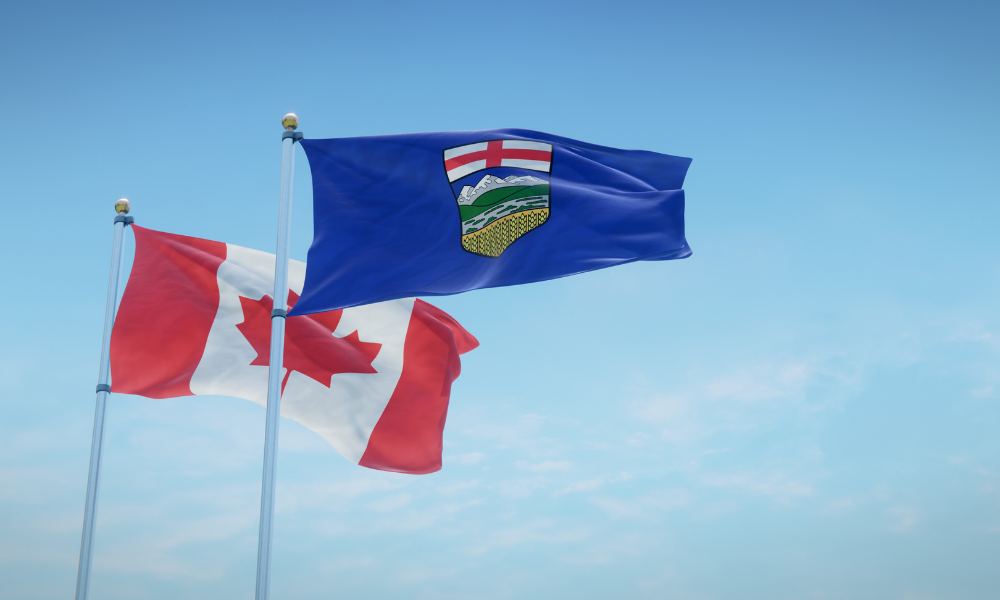
Lawyer cited religious objection to Alberta's Legal Profession Act rule

The Alberta Court of Appeal needs to consider group beliefs and not merely those held by an individual when assessing freedom of religion claims, argues the BC Civil Liberties Association, which is intervening in a lawsuit that challenges a provincial requirement for prospective lawyers: swearing an oath of allegiance to the sovereign of Canada.
Mandated under Alberta’s Legal Profession Act, prospective lawyers must affirm the oath of allegiance to be called to the bar. However, the BCCLA argues that the requirement “constitutes a moral conundrum and barrier for prospective lawyers whose beliefs and rights are incompatible with taking the oath, which can include Indigenous peoples and people of different religious faiths.”
The BCCLA will present oral arguments to the court of appeal on Thursday.
Prabjot Singh Wirring, a prospective lawyer who is an Amritdhari Sikh, filed his challenge to the Alberta requirement against the province and the Law Society of Alberta. Wirring alleged the requirement violates his right to religious freedom under the Charter of Rights and Freedoms, arguing he cannot swear allegiance to the sovereign of Canada because he made an absolute oath to Akal Purakh, the divine being of the Sikh faith, as part of his religion.
The Alberta Court of King’s Bench disagreed with Wirring, ruling that the oath required under provincial law is “symbolic” and not literal. Wirring appealed the court’s decision.
The BCCLA intervened in the case on two grounds. In a factum filed in July, the organization said courts have historically looked at freedom of religion claims by assessing “whether state action interferes with an individual’s personal beliefs.”
However, the organization argued that the courts need to also consider the beliefs of the individual’s religious group. An individual’s beliefs can differ from the beliefs of the group to which he belongs. Individual beliefs are typically subordinated to group religious beliefs since an individual's ability to participate in religious activities depends on his compliance with the religious community’s beliefs and rules, the BCCLA said.
In a scenario where an individual does not personally believe his religion requires him to abide by certain rules, but his community mandates those rules, it is unclear whether state action that prevents the individual from following the rules violates his freedom of religion since he does not personally subscribe to those rules. A court that reviews freedom of religion claims by adopting an individual-level focus would likely find that the state’s actions did not violate the individual’s rights since he lacks the sincerely held belief in the rules.
However, if the court considers that such state action would indirectly prevent the individual from participating in religious activities, the court might consider the same state action a breach of the individual’s religious rights, the BCCLA said.
The organization noted that affidavit evidence by Wirring and a professor specializing in the Sikh faith “both attested that Mr. Wirring would be excommunicated from his religious group if he were to swear the oath at issue in this appeal.
“This appeal accordingly illustrates the tension that can exist between group-level beliefs and state action,” the BCCLA added.
The organization’s second grounds for intervention emphasized that in certain scenarios, freedom of religion claims that raise multiculturalism issues need to be considered in light of the Charter’s goal of furthering multiculturalism.
“Where a claimant alleges that there is a state-imposed barrier that prevents a minority group (or members of that minority group) from participating fully in Canadian society, s 27 [of the Charter] requires a court to interpret the right to freedom of religion broadly, with an eye to removing that barrier,” the BCCLA said.
The Law Society of Alberta declined to comment on the case because it is an ongoing matter. The Ministry of Justice of Alberta did not respond to a request for comment.
The BCCLA was unable to comment on the case.